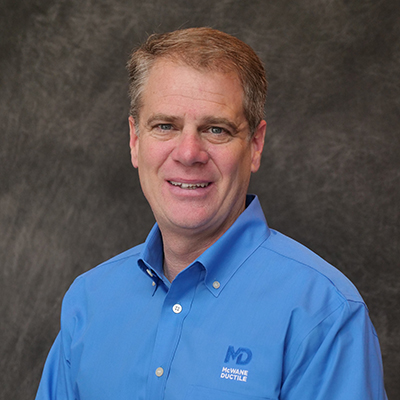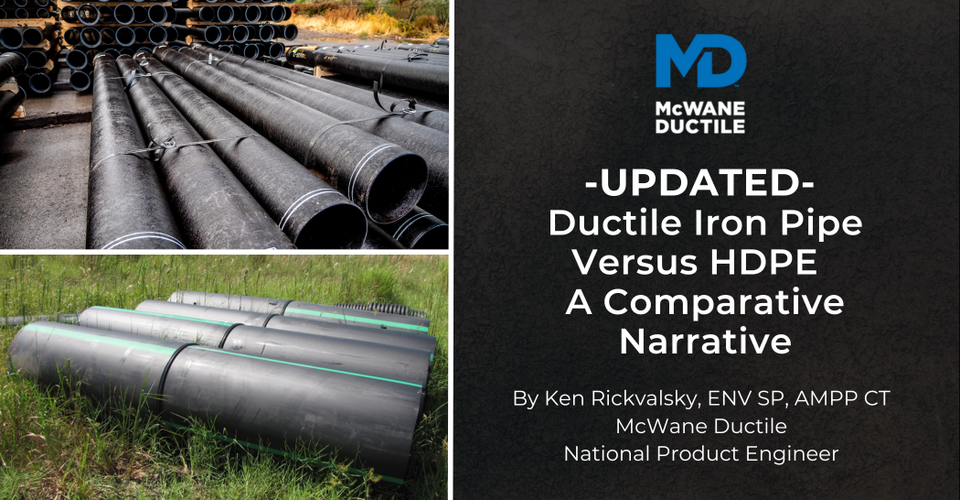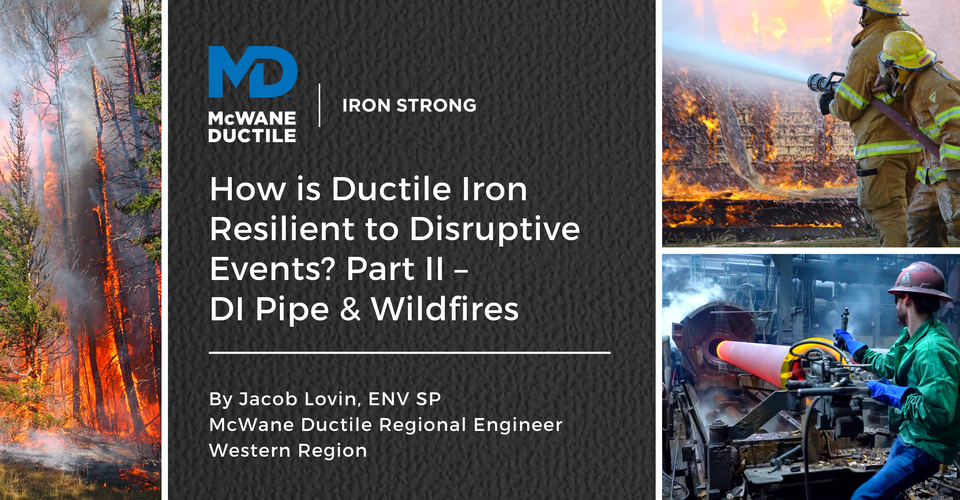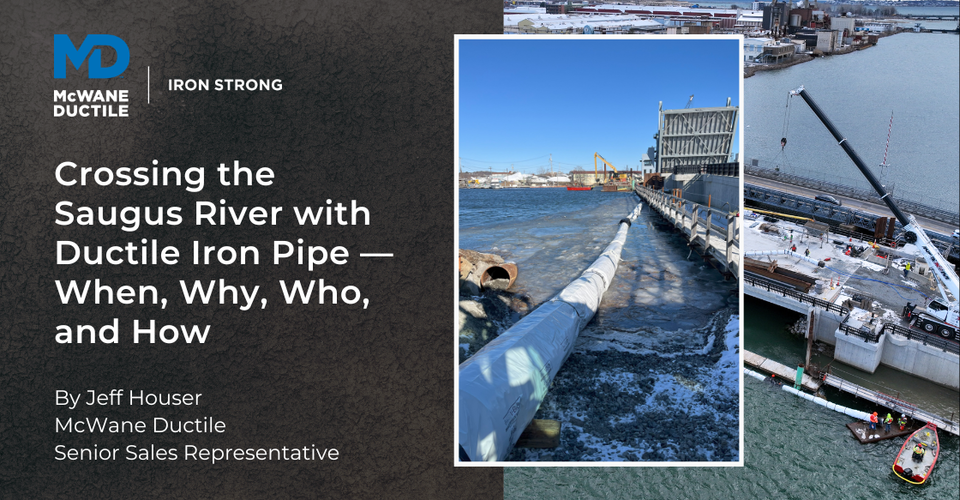After completing my continuing education lunch presentation on restrained joints and horizontal directional drilling for a civil engineering office and reminding the group to sign the sign-in sheet to verify their attendance, I had a younger engineer approach me to ask a question. The question was whether I knew how many continuing education hours his state required and what information he needed to confirm his attendance for the continuing education activity. Those questions are relatively common, and this #IronStrong Blog will focus on answering what continuing education hours are, why civil engineers need them, and how they get them.

What is continuing education for Civil Engineers?
Continuing education can be defined as education received after a formal education program, typically consisting of short, part-time courses, classes, or presentations. A continuing education Professional Development Hour (PDH) is one contact hour of instruction, presentation, or study. The term PDH is commonly used in the engineering community. Regardless of what type of registered engineer you are, it is up to the engineer to continue their education and improve their skillset.
State licensing boards have increasingly emphasized continuing professional development in technical and non-technical content as a condition for maintaining and renewing licenses. Non-technical content could include training in standards of practice, ethics, codes of conduct, and other methods of professional practice essential for competent practice. The number of technical and non-technical hours required for continuing education will vary per registration state. Still, non-technical continuing education usually is significantly less (Generally 1 hour per year).
The following activities are typically acceptable to meet the state licensing boards' continuing education requirements:
- Completing online courses or correspondence courses on topics related to the licensee's professional practice.
- Completing or attending in-house training related to the licensee's professional practice.
- Attending technical or professional society meetings when a topic related to the licensee's professional practice is presented as a principal part of the program, such as the American Society of Civil Engineers, the National Society of Professional Engineers, the American Council of Engineering Companies, the American Water Works Association, and more.
- Teaching a course for the first time or if substantial time has been spent updating material if previously taught.
Most state engineering boards will require documentation verifying attendance and completion of the continuing education activity. This documentation is commonly called a continuing education certificate and is generally emailed or handed out to attending individuals after activity completion. The document typically consists of:
- Who participated in the course or presentation
- Who taught or presented the topic
- Where the activity was located
- When the activity happened
- How many Professional Development Hours were achieved (typically in half-hour or one-hour increments)
- A brief description of the course education activity
See the example below. Currently, the licensing boards of most states require that Professional Engineers improve their skills through continuing education. The necessary hours differ from state to state but are generally between 12 and 15 hours per year. It is the engineer’s responsibility to know the rules governing the states in which they practice.
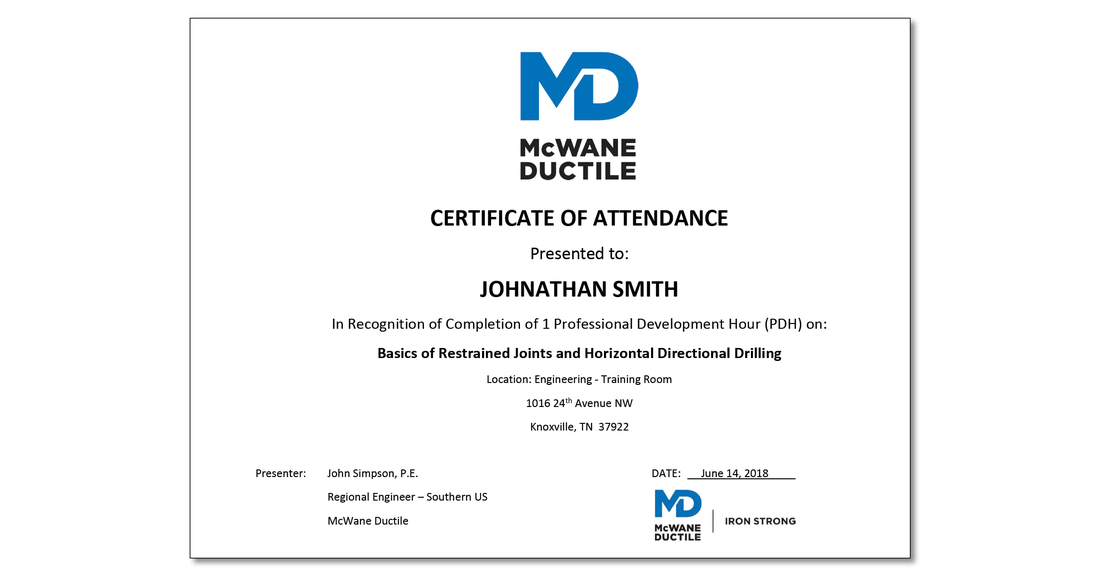
Why do civil engineers need continuing education?
It is essential that practicing civil engineers remain current with rapid advances in innovation, technology, and understanding of our world's expectations to maintain competency. Continuing education drives engineers to learn how to adapt and incorporate new technologies, developments, skills, and regulations within their field.
Here are some key reasons why civil engineers need continuing education:
-
Increases Your Knowledge Within Your Discipline.
Taking advantage of professional development hours makes you more capable and knowledgeable in your career. Understanding how new technology and innovations can improve your ability to serve your client and community will make you a better engineer. - Almost Every State Has Certain Professional Development Hour Requirements.
While professional development hours benefit your expertise and career track, remember most states require them for licensed Registered Professional Engineers. Be sure that you know the requirements in the state you are authorized in because failing to achieve the continuing education requirement can put your license at risk. - Failing to Acquire Continuing Education Hours Could Put People at Risk.
Aside from obtaining knowledge through the completion of professional development hours, be confident that you’re also doing it for your client and the general public. Failing to stay on track with your professional accreditation could risk people's safety and general welfare. - It can provide networking opportunities.
Having a solid network of civil engineers and other engineering professionals can create opportunities and provide you with practical resources. Engaging in continuing education will provide opportunities to meet other engineering professionals, potential employers, and industry experts. The licensee can use continuing education to make new connections, learn how others in your field address challenges and find work opportunities.

As a general rule, state licensing boards allow engineers to be self-audited. Therefore, the licensee determines the qualifying activities/events for continuing education. There is a broad range of opportunities to earn Professional Development Hours. It is up to the licensee to determine whether the activity qualifies under the State Board’s requirements. Activities vary from state to state, so please check with your state licensing agency. Most continuing education activities will satisfy board requirements, provided the topic discusses some engineering aspects and relates to the licensee's professional practice.
Two quick side notes:
- Most states do not require potential engineers who have passed the Fundamentals of Engineering Examination (Engineers in Training, E.I.T.) to maintain or achieve continuing education hours. Continuing education comes into play only after the engineer passes their professional engineering examination.
- Water and Wastewater Plant Operators' continuing education activities are typically not self-audited in that the state licensing board for plant operators requires pre-approval for continuing education activities. To get an activity approved for continuing education credit for plant operators, the company or individual must submit information on the activity to the state licensing board that explains what the activity is and how it provides continuing education for the plant operator.
Where do Civil Engineers get Continuing Education Hours?
Obtaining Professional Development Hours can vary from state to state, just like the number of continuing education hours. Some companies offer approved in-person or remote continuing education programs for engineers, but sometimes, these can be expensive. As I mentioned, you can:
- Attend courses online
- Attend and complete in-house training
- Attend technical sessions at conferences or tradeshows
- Attend local or state professional society meetings
- Or teach a course, providing it relates to the licensee's professional practice for continuing education
Our society relies on the skills and knowledge of well-trained engineers who design and supervise the construction and maintenance of critical infrastructure projects, such as roads, bridges, tunnels, and water and sewage systems. Continuing education is vital to ensuring engineers are up to handle these important responsibilities.

Need more water industry education or hands-on jobsite training? Check out this list of virtual or in-person presentations offered for free by McWane Ductile.
DOWNLOAD NOW
McWane Ductile offers free learning opportunities in person or remotely that qualify for continuing education requirements for engineers, Water Plant Operators, and Wastewater Plant Operators. Topics offered by McWane Ductile highlight Ductile iron pipe benefits and applications for engineers and municipalities. McWane Ductile also provides half-day or full-day training seminars called a Day of Water (DOW). These benefit companies or individuals who want to achieve several hours of continuing education in a relatively short time. See the example flyer below.
There is no charge to the consulting firm or municipality for attending. McWane Ductile offers these continuing education opportunities to help ensure that Ductile iron pipe is designed and installed in the correct application, thus safeguarding its 100-year design life. See AWWA’s Report Buried No Longer (awwa.org). If you have any questions or are interested in obtaining continuing education hours or arranging a Day of Water for your engineering staff, contact a McWane Ductile Engineering and Tech Support team member.
Need Assistance with Your Waterworks Project?
If you have any questions regarding your water or wastewater infrastructure project, be sure to reach out to your local McWane Ductile representative. We have team members who've managed small and large water utility systems, served in engineering consulting firms, and bring decades of experience in solving field issues involving pipeline construction and operation. From design to submittal to installation, we strive to educate and assist water professionals throughout the water and wastewater industry.


